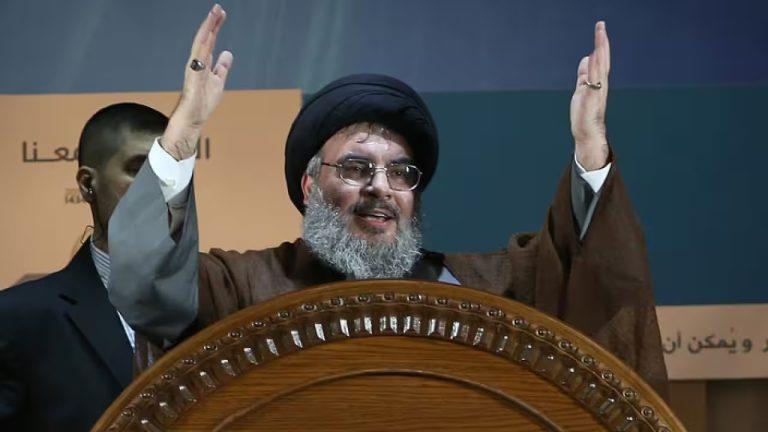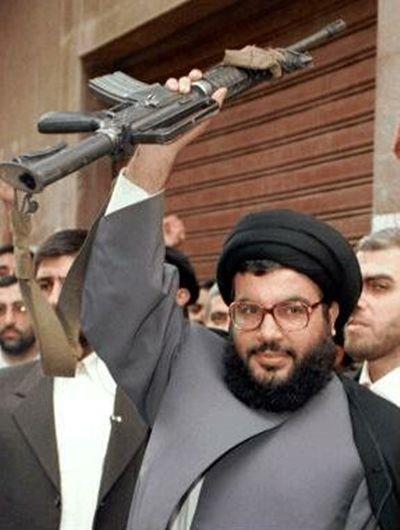(MENAFN- Daily News Egypt) Hassan Nasrallah, the leader of Hezbollah, has steered the Lebanese militant group for three decades, transforming it into one of the most powerful paramilitary forces in the Middle East. His charismatic personality and his militant path have made him a major figure both for Hezbollah militants and supporters, solidifying his position as one of the Arab world's top leaders.
Nasrallah was confirmed dead in an Israeli strikes that targeted the southern suburbs of Lebanese capital, Beirut.

Hassan Nasrallah
Nasrallah, often described as a“second Che Guevara” by Western commentators, evokes both admiration and resentment. But his career is undeniably an integral part of Middle Eastern history. This article delves into the evolution of Nasrallah's charisma, tracing his journey from childhood to his rise as Hezbollah's secretary-general, and then examining how public perception of him shifted between 1992 and 2000.
Born in 1960 to a poor Shiite family in Beirut, Nasrallah was later displaced to south Lebanon.
Nasrallah's path to leadership began with his theological studies and his involvement with the Amal movement, a prominent Shiite political and paramilitary organisation. He would later become one of the founding members of Hezbollah, which emerged in the summer of 1982 with the arrival of Iranian Revolutionary Guard members in Lebanon to fight invading Israeli forces. Hezbollah represented Iran's first foray into backing and utilising a group to advance its political ideology within the region. As Hezbollah grew in power, Nasrallah established a strong base of support, becoming a key figure within the“Axis of Resistance,” a network of groups and governments.

Hassan NasrallahTwo days after Hezbollah's leader, Sayyed Abbas Musawi, was killed in an Israeli helicopter gunship raid in south Lebanon in 1992, Hezbollah chose Nasrallah as its secretary-general. Five years later, the United States designated Hezbollah a terrorist organisation.
Under Nasrallah's leadership, Hezbollah was credited with leading the war of attrition that led to the withdrawal of Israeli troops from south Lebanon in 2000, after an 18-year occupation. Nasrallah's eldest son, Hadi, was killed in 1997 while fighting against Israeli forces.
Nasrallah became an icon of resistance in both Lebanon and the wider Arab world following the withdrawal of Israeli occupation forces from southern Lebanon in 2000. His messages were broadcast on Hezbollah's own radio and satellite TV station. His prominence was further cemented during the 34-day war in 2006 when Hezbollah fought Israel to a stalemate.
When the Syrian civil war erupted in 2011, Hezbollah fighters joined forces with President Bashar Al-Assad, even though Hezbollah's popularity declined as the Arab world ostracised Assad.
Hezbollah launched attacks on Israeli military positions along the border on October 8th, just a day after the start of the current conflict between Hamas and Israel on October 7, in what he called a“backup front” for Gaza.
In speeches throughout the conflict, he has argued that Hezbollah's cross-border strikes have drawn away Israeli forces that would otherwise be focused on Hamas in Gaza and insisted that Hezbollah would not halt its attacks on Israel until a ceasefire is reached in Gaza.
Nasrallah has maintained his defiant tone, even as tensions rose dramatically in recent weeks with Israel announcing a new phase in the conflict intended to push Hezbollah back from the border to allow thousands displaced from northern Israel to return.
Israel launched strikes killing top military commanders within the group and was blamed for the explosion of thousands of communications devices, mainly used by Hezbollah members, that killed 37 people and wounded thousands.
Despite the violence, US President Joe Biden told the UN General Assembly that a full-scale conflict was“not in anyone's interest” and insisted that a“diplomatic solution is still possible”. UN Secretary-General António Guterres warned that the world“cannot afford Lebanon to become another Gaza”.
MENAFN28092024000153011029ID1108725420
Legal Disclaimer:
MENAFN provides the information “as is” without warranty of any kind. We do not accept any responsibility or liability for the accuracy, content, images, videos, licenses, completeness, legality, or reliability of the information contained in this article. If you have any complaints or copyright issues related to this article, kindly contact the provider above.